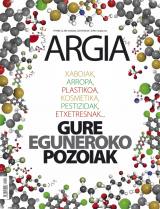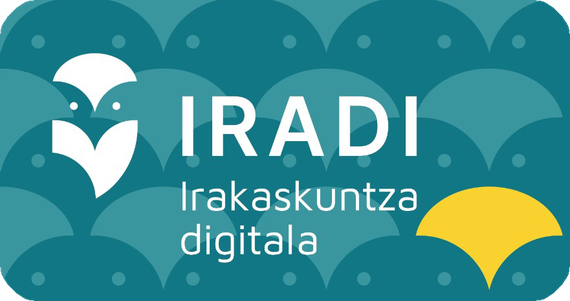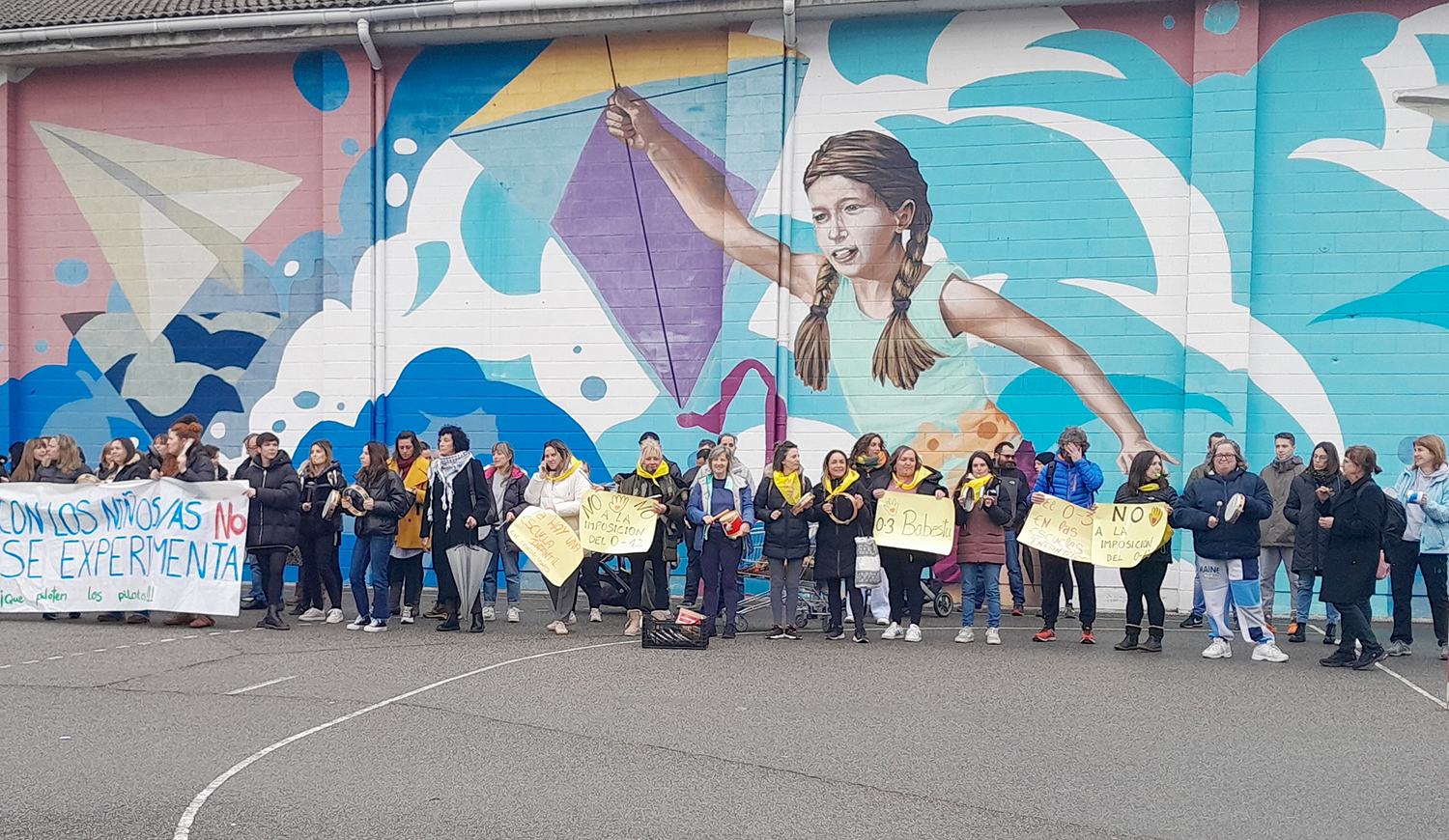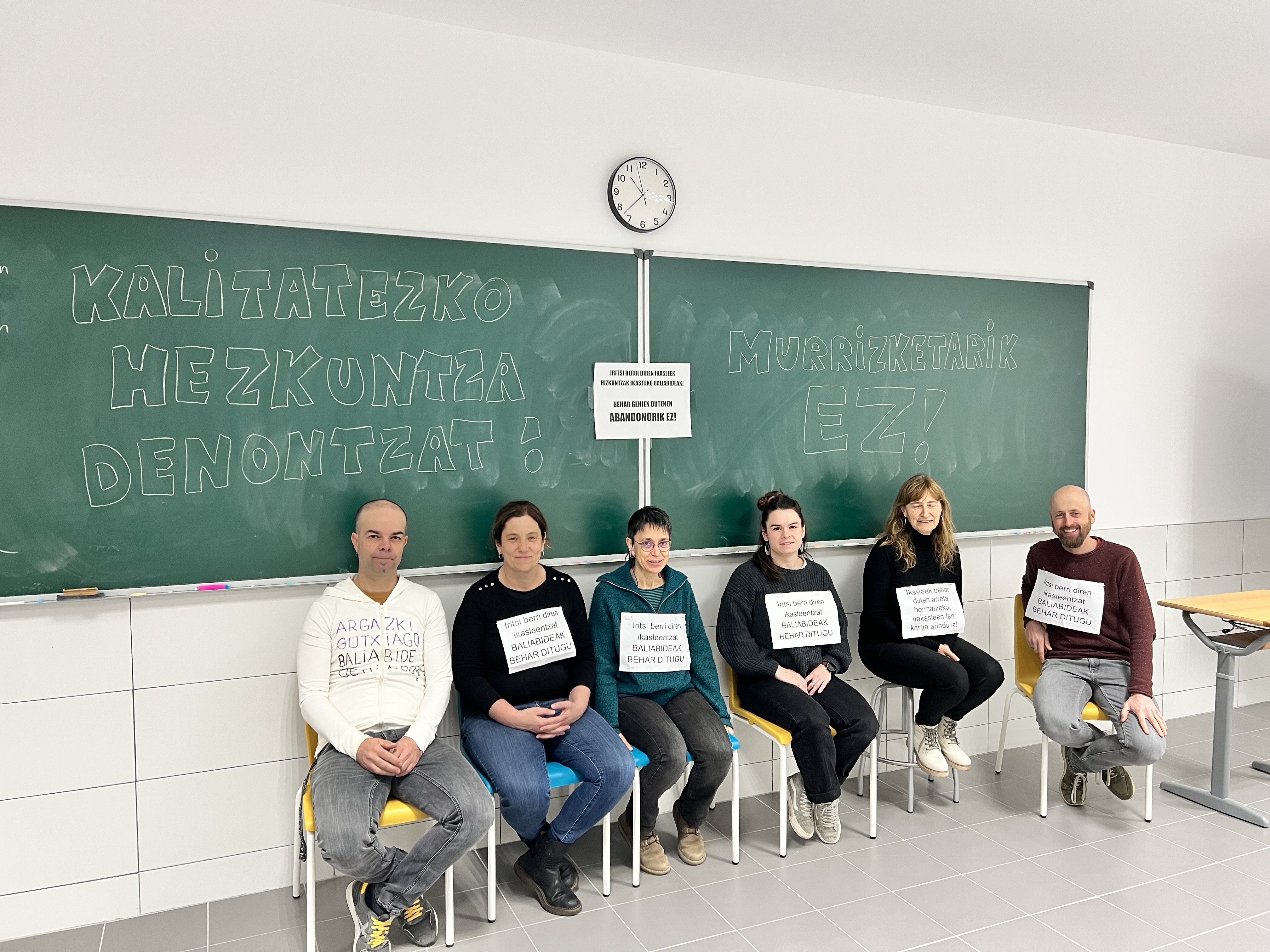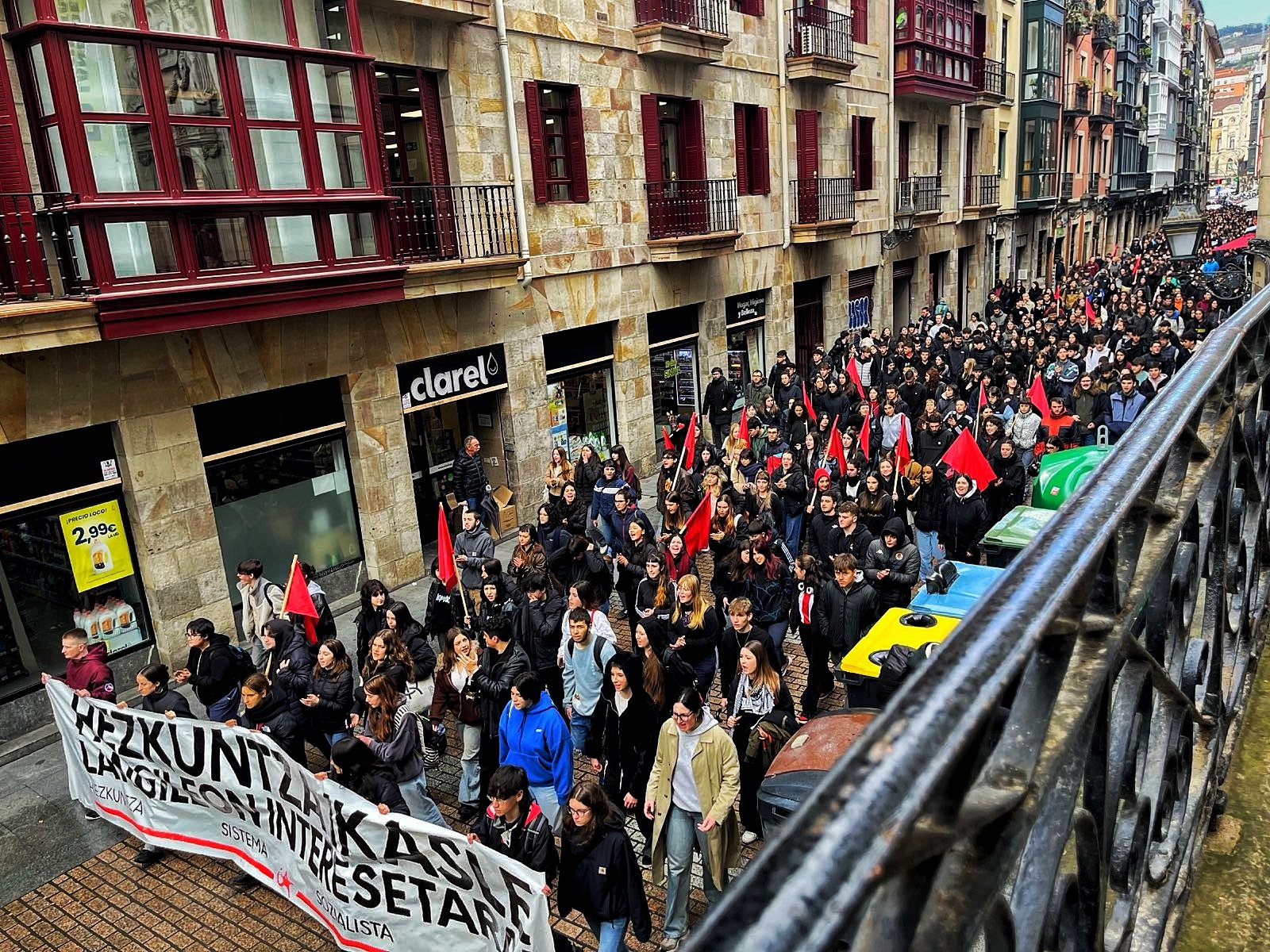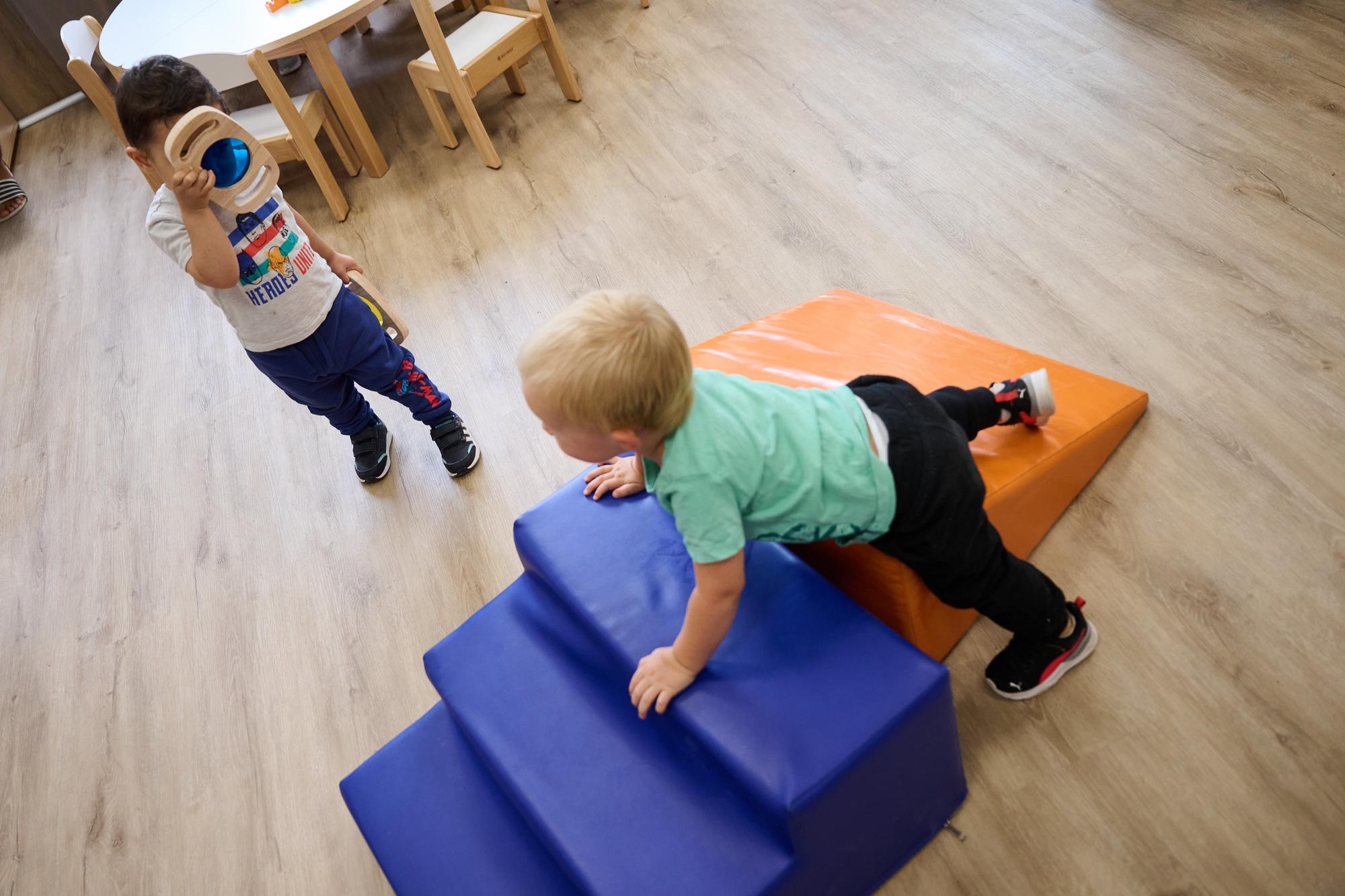Sowing healthy relationships
- Power relations contaminate our everyday relationships. With the aim of reversing these unequal relationships between children and young people, in the ikastola of Oiartzun have launched the Haziak project, which has served to move within the students, to express different feelings and to raise awareness about the influence of the meetings.
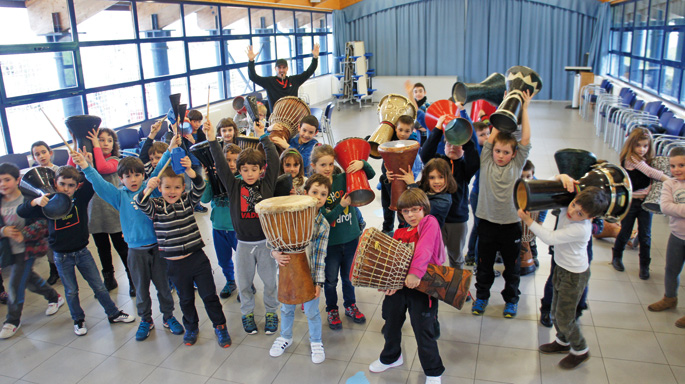
The topic of leadership has taken a major role in the classroom of Professor Koro Uria, whose students are between 11 and 12 years old. “We leaders do them unintentionally,” one of them added, and that’s where the debate started. Young people highlight the advantages of being leaders: “Everyone hears him, he’s famous, he has many friends, he doesn’t feel alone, others do what he wants to do...” And the bad guys also: “When you want to be alone it costs you, you always have to make the decision, the rest copy you what you decide…”. There have been moments of tension, all the looks have been directed at the leaders of the class, and when they have managed to overcome the general silence, they have been freed, even those who have the least habit of taking the floor have spoken. Many situations have come to light, there have been messages to leaders, and although they do not agree with them, they have talked about courage to express their decision and to know how to say no. This is what Koro Uria told us. “We’ve talked about it, and next time, for example, when you have to decide the afternoon plan, all of this, at least, will be internalized.”
The previous experience is one of those framed in the Haziak project, launched at the Ikastola Hauraro de Oiartzun. Nora Barroso and Nekane Martiarena are the drivers of this ikastola. They say that it is a project born of necessity, because in society we do not dedicate enough time to relationships and coexistence. “We understand the relationship of power from a polyhedral point of view, because it encompasses different forms: bullying can be our relationship with nature, directing men strongly towards women…”. Raising awareness of unequal relationships is the first step towards subverting them. “In the Haziak project we do not judge anyone, we do not say what and how each one has to do, we open the doors for each one to decide: stop, rest, look inside, and then open the eyes, look from within the environment, our relationships with the environment and with the people and entities of the environment, and with oneself (because we often put great burdens on ourselves), feeding the interior and the exterior. When we're angry, instead of starting to break everything or hurt others, it's good to look in a second and see why we're really angry. From there, everyone will see what they need, how they will manage their feelings,” Barroso explained.
From the individual to the group, with the story and the comic
Seeds have been treated in 2nd Primary (with children aged 7-8 years) and 5th and 6th Primary (with children aged 10-12 years), as they are special years: In LH2, children have spent five years together and already have the roles marked. In the LH5-6, they mix and create new classrooms from the previous year, changing situations and relationships. In LH2 the topic discussed was “Empathy” and in LH5-6 “From the individual to the team or learning to live”.
The smaller ones, to address the issue of empathy, have used the Moroccan Igel story that suffers a given situation, and those 10-12 years old, the BarruKLIK comic about people with marked roles that will have to face an event. To create this material, the perspective of the faculty has been fundamental, to start from the real needs, from what they live and see in the ikastola on a daily basis. In the creative process, the opinion of other comrades and fellow travellers has also been important – to give an example, the feminist group of the locality Antiju Mori has supervised the material from a gender point of view – and, of course, they have based the material on the participation of the children themselves: as they have been done, they have been questioning and asking for advice from the youngest, incorporating their point of view. Also for the website of Haziak, children have made many contributions that did not occur to adults: chat, need for a place to think, be able to see all the sections from the beginning at the same time… And especially thinking about blind children, they have made audios of story and comic for the material to reach the maximum of the senses.
Koro Uria, professor:
“There have been moments of tension, and when they have managed to overcome the initial general silence, they have been freed, even those who have the least habit of speaking have spoken. Many situations have emerged”
Before each session, to start from scratch, you've seen/heard short videos and audios playing with breathing, rhythm, music and colors. The work has been individual, group and general (all the classroom together). First, they have read the beginning of the story or the comic book and have expressed it to the letter (through drawing, in writing, making a personal reflection…). “That individual moment is very important, because we often address issues directly in groups, and some find it harder to open them, the ones that always get them on top. Then they will have the ability or not to take it to the group, but unless before everyone has their space,” Martiarena stressed. In addition to the beginning of the story, they have also read the end of the story, and in groups formed by chance, they have gone hand in hand along the way: “I’m sad and I want to be happy, I’m going to make the way for it, thinking alone and discussing in a group, although I may not get the ideal.” The material is open and on the way there are surprises, the stories can have more than one interpretation and you can walk different paths, as well as complete the story or comic book on demand, incorporating new leaves or vignettes. To help group dynamics, creators have drawn up a list of questions along with the material.
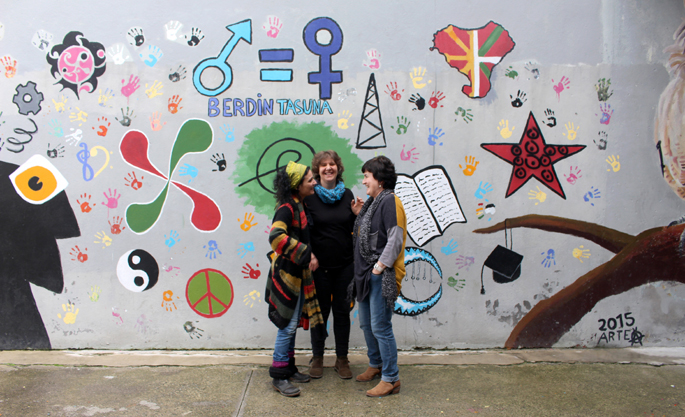
Askebideak, domestic work and initiative for all people
In addition to the word, they have also opened other forms of expression “for every child to discover their inner world.” Students have been able to choose from four options: story (directed by writer and storytellers Pello Añorga), drawing and image (led by creative education expert Idurre Ugalde), body expression (directed by percussionist Odei Astibia) and rap (with rapper Odei Barroso’s hand). “Those who have chosen Rap, for example, say ‘I suffer’ in the song they have composed, have clearly expressed what they feel through music,” they told us.
They've also worked the project at home. In the case of children between 7 and 8 years old, on average they have made the frog of the story and brought it home. Those who identify with the frog that suffers can more easily express what happens through it, while those who do not identify themselves can develop empathy on their surface. Students aged 10-12, for their part, have taken the comic book home and read it and debated it with their parents. A series of questions have been asked – agreed upon by the children themselves in class, proposed by the creators of the project – and parents have had to answer with their sons and daughters, with questions about personality, about roles, about the situations experienced when they were young… “Here too, the goal has been to liberate”, says Nora Barroso.
N. Martiarena, father and mother:
“It’s important to have an individual pre-space, because we often address issues directly in groups, and some find it harder to open them, those that are always loaded.”
Finally, the project has taken to the streets, has been socialized and has been offered to other schools and older children, to all the people in general. Non-formal education, in particular the Ludoteca de Oiartzun, has been an important mediator in this work. Among other things, the story and the comic will be distributed by the people (outpatient, library, bars…), will show what worked on the freeways and the play Futbolariak and Printzesak has been performed. To address these issues, the game has been one more tool both at school and in the library. In the mirror game, a couple repeats what a couple has decided; in the so-called empty space, the next must alternate the forms that each one has left with the body and fill the empty spaces that have left it; in the train game the driver must do what he does; in the relaxation or contact promotion games…
They have dedicated about 10-12 sessions/hours to the Haziak project in the center. Now, until June, you'll need the same to address the second topic that you've prepared: managing relationships in LH2 and relationships and models of relationships between boys and girls in LH5-6. The Dejabu Panpin Laboratorios will lead the second round and has already created three fictions to enter the world of fiction.

Anger, loneliness, crew…
“Seeds have been the excuse and the means to further open the doors to these issues and give them time,” says Professor Koro Uria. On the one hand, the fact that it is different from the usual practice has created mystery and curiosity; on the other hand, as it is a project from outside, the students have not welcomed it in the usual way, ‘Koro comes back with these things’, because they have also addressed the issue comics, the people of the Haziak project, the people of the house… Otherwise, the students make ghettos: with the teacher we have these codes and away from them. The initiative has served to break the ghetto, open it, and realize that the school, the house, the plaza… everything is one.”
Haziak has also had the opportunity to learn about the ecosystem of this room, with students between 11 and 12 years old. Comic book characters have been brought to the group: shy, invisible that goes unnoticed, invalid, leader, that protests for everything... And in addition to talking about leadership as we have mentioned before, indignation has gained a great prominence in the sessions: how we get angry, how to expel ourselves, if we put words on it, why on those occasions we are different with parents or friends... “Many parents have been involved. And it’s very important that schools and homes share space so there aren’t two worlds apart.”
Nora Barroso, mother:
“In other towns and schools the reality will be different, but here are the themes and materials we have worked on. We feed each other, so that we can gather different views and create a rich network.”
The professor has stressed that they have spoken to feelings and that they have had the opportunity to talk about basic principles: that we are all important, that there is more than one solution, that each one has his own opinion… “According to those principles, each one will put himself in. Don't believe, I tell you, that everything you feel we've solved the adults. It is the path that is made in life, and we have more experience, but we continue to learn.”
The project promoters are willing to extend it to other centres and locations. The reality will be different, “but here you have at your disposal the themes and materials we have worked on, and if you use other materials, walk us. We feed each other, we get different views, we create a rich network,” Barroso said.
In addition to those mentioned in the report and the teachers and parents who have counted on their accomplices, the program has had many fellow travellers. For example, Iametza Interaktiboa, Oiartzun Irratia, Lorea Agirre, Eider Eibar, Lur Korta, Jon Martin, Idoia Beratarbide… It is a live and open project, in which new friends and agents will join depending on emerging needs. Professor Uria is clear, it is essential to raise the issue again and again: “As much as we have worked, there are always small slots that we don’t control. Despite being close and sensitized, there are unpleasant situations, we have to be very attentive and technologies and social networks are also unknown highways for many of us. That’s why projects like Haziak are so important.”

Hezkuntza eredu propioa "ezinbestean" independentziatik etorri behar dela adierazi dute, eta sistema propio hori "publikoa eta komunitarioa" izatea nahi dutela. Ikamak deituta, goizean zehar piketeak egin dituzte Euskal Herriko hainbat hezkuntza zentroetan.
EAJk, EH Bilduk eta PSE-EEk ekimen bat adostu dute Eusko Legebiltzarrean Hezkuntza Sailari eskatzeko Iradi software libreko hezkuntza plataforma hedatzen jarraitzeko. Zenbait ikastetxetan ezarri da Iradi orain arte. Baliabide partekatuak, komunikazio zerbitzuak (e-posta eta... [+]
Oier Sanjurjo Maté hautatu dute Nafarroako Ikastolen Elkarteko lehendakari. Atzo egindako asanbladan erabaki zuten izendapena. "Mugarri garrantzitsua da euskarazko hezkuntzaren etorkizunerako foru erkidegoan", adierazi du Ikastolen Federazioak ohar batean.
Eskolaz kanpoko jardueren eskaintza zabala egiten duten ikastetxeen aldean, beste askok ez du horretarako aukerarik; eta eskola bereko ikasleen artean ere, denek ezin dute ekintzetan parte hartu, baliabide ekonomikoek baldintzatuta. Esku hartzeko dei egin diete instituzioei:... [+]
Haurreskolara beharrean, 0-3 urte bitarteko umea zuzenean ikastetxera bidaltzea, Haur eta Lehen Hezkuntza osoa (12 urtera arte) hartzen dituen zentro berera. Hori da Nafarroako Hezkuntza Sailak Burlatako Hilarion Eslava ikastetxean martxan jarriko duen proiektu pilotua eta... [+]
Institutuko giza baliabideak hobetzeko eskatu dute irakasleek, ikasleei kalitatezko arreta eman ahal izateko. Kartelekin eta pankartekin itxaron diete irakasleek lehendakariari. Jaurlaritzako ordezkariek ikastetxeko zuzendaritzari esan diote ez zutela "horrelakorik... [+]
Ongi etorria eman digu Unai Mendizabalek A eredutik D eredura aldaketa egitea erabaki dugulako Judimendi auzo eskolan. Bidea malkartsua izango dela ere ohartarazi digu Armentia Ikastolako guraso eta Arabako Ikastoletako lehendakariak. Gure esker ona adierazi nahi diogu eman... [+]
Azken asteetan zenbait unibertsitatetako ate irekien jardunaldietara joateko aukera izan dut. Semea aztertzen ari da zer ikasiko duen datozen urteotan eta, erabakia hartu aurretik, komeni da aukera guztiak begiratzea. Unibertsitate bakoitzak badu bere misioa, bere izaera, bere... [+]
Ez dira gutxi azken boladan euskara bere onenean ez dagoela eta bere transmisioa bermatuta ez dagoela ohartarazten ari diren ahotsak. Bestetik, inork ez du ukatzen hezkuntzak ezinbesteko betebeharra duenik euskara eta euskal kulturaren biziraupenerako. Erronka estrategikoa... [+]
Hezkuntza bi arazo handik zeharkatzen dutela adierazi dute IAk: "ideia erreakzionarioen" gorakadak eta "ikasleen egoeraren okertzeak". Mobilizazioaren deialdia hedatzeko, goizean errepide mozketak egin dituzte Donostian, Iruñean eta Gasteizen. Bilbon, Euskal... [+]
Iruñeko haur eskoletako zuzendariek, EH Bildu, Geroa Bai, Zurekin Nafarroa eta PSNren arteko akordioa kritikatu dute. “Murgiltze ereduaren alde egin dugu beti, baina inoiz ez da gure iritzia kontutan hartzen” salatu du Euskalerria Irratian, Garikoitz Torregrosa... [+]
Zinez txalogarria, eskolako irakasle talde jakin baten borondatez, eta zenbait gurasoren inplikazioz, A ereduko ikastetxe estigmatizatu bat D ereduko eskola bilakatzeko abian jarri duten prozesua Gasteizko Judimendi auzoan. Honela, posible egiten ari dira Araba, Bizkaia eta... [+]
2025-2026 ikasturterako matrikulazio kanpaina hasi baino bi aste lehenago, Hezkuntza Saileko arduradunengana jo genuen, itunpeko eskoletako gelen ituntze maila ez delako egokitzen demografiaren jaitsierara eta indarrean dagoen lege esparrura.
Hiri gehienetan arazo orokorra... [+]
Eskolako zenbait gurasok euskalduntzeko egindako ahalegina ikusarazi, eta hezkuntza komunitatean euskararen aldeko jarrerak piztu. Helburu horiekin bultzatu du Autobiografia Linguistikoak ekimena Ramon Bajo ikastetxeko Basartea gurasoen elkarteak, Gasteizko Alde Zaharrean. Pozik... [+]









